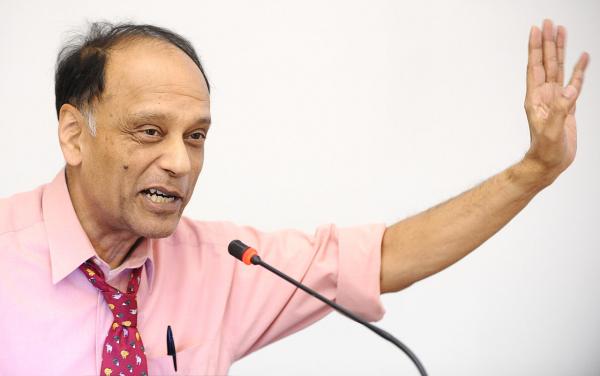"Nature is our home. Good economics demands we manage it better,” said Cambridge University economist Professor Sir Partha Dasgupta on 2 February as he presented his highly anticipated review, "The Economics of Biodiversity".
Water challenges feature high in the 600-page “Dasgupta Review”, which examines the economics of biodiversity and lays out a framework for a radical move away from economic thinking that measures progress in terms of global GDP.
Identifying water and water-based systems as inherent to the goods and services provided “for free” by the biosphere and unaccounted for in conventional economic thinking, the Review argues that nature is an asset and that biodiversity is what “enables nature to be productive, resilient and adaptable”.
Asserting that food, potable water and clean air are “no doubt universal needs”, it finds that humanity has “collectively failed to engage with nature sustainably, to the extent that our demands far exceed its capacity to supply us with the goods and services we all rely on.”
The Review examines market and institutional failures and accuses governments almost everywhere of paying people more to exploit nature than to protect it. Stating that “the solution starts with understanding and accepting a simple truth: our economies are embedded within nature, not external to it,” the Review calls on policy-makers to account fully for the impact of our interactions with nature and rebalance our demand with nature’s capacity to supply.
In the Review’s foreword, Sir David Attenborough said: “[The Review] shows us how, by bringing economics and ecology together, we can help save the natural world at what may be the last minute – and in doing so, save ourselves.”
Welcoming the Review, UK Prime Minister Boris Johnson said: “Protecting and enhancing nature needs more than good intentions – it requires concerted, co-ordinated action.”
The Review has been broadly welcomed by sustainability organisations, scientists and academics, and the UK Treasury has promised to examine the Review’s findings and respond formally in due course.
However, some commentators are casting doubt on the ability of nations to find consensus on a path forward, while others are suspicious of the ability of the structures and mechanisms that caused the problem to solve it.
UK journalist and environmental campaigner George Monbiot tweeted: “What Sir Partha Dasgupta promotes is a kind of totalitarian capitalism [that] extends the capitalist revolution even into our relations with the living world,” adding, “We cannot defend nature through the mindset that is destroying it.”

